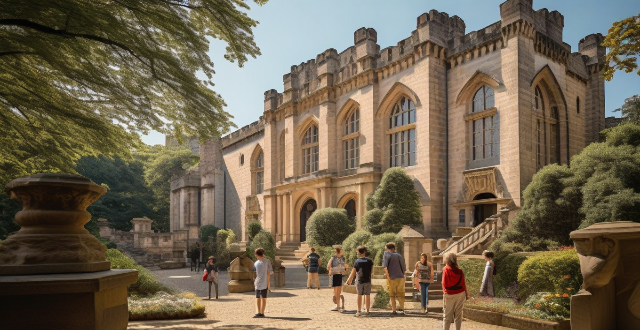To enhance your understanding of historical events and dates, start with introductory books for a broad overview before diving into subject-specific literature. Watch educational videos and documentaries for visual learning. Visiting museums and historical sites offers tangible connections to the past. Engaging with online courses and lectures provides expert insights. Participating in discussion groups and forums exposes you to different perspectives. Creating timelines and taking notes aid memory retention. Integrating various sources through cross-referencing and critical thinking fosters a well-rounded understanding of history.

Enhancing Your Understanding of Historical Events and Dates
1. Reading Historical Textbooks and Guides
- Start with the Basics: Begin with introductory books that provide a broad overview of historical periods. These books often include timelines and key events that serve as a foundation for deeper understanding.
- Choose Subject-Specific Books: Once you have a basic understanding, dive into books that focus on specific events, eras, or regions. This will help you grasp the nuances and complexities of different historical contexts.
2. Watching Educational Videos and Documentaries
- Educational Channels: YouTube and other platforms host numerous educational channels dedicated to history. Videos can offer a visual representation of historical events, making them easier to understand and remember.
- Documentaries: Documentaries often provide in-depth analyses of historical events and can be an engaging way to learn about history. They often include interviews with experts and showcase primary sources like letters, diaries, and photographs.
3. Visiting Museums and Historical Sites
- Museum Exhibitions: Museums display artifacts from different periods, providing a tangible connection to the past. They also often include detailed explanations of historical contexts.
- Historical Sites: Visiting places where significant historical events occurred can bring history to life. It allows you to better understand the physical settings in which events took place.
4. Engaging with Online Courses and Lectures
- Online Courses: Platforms like Coursera, edX, and Khan Academy offer courses on various historical periods. These courses are often taught by university professors and include assignments and quizzes to test your knowledge.
- Lecture Series: Many universities post lectures online. These lectures can provide insights from experts in the field and often cover topics in greater depth than textbooks.
5. Participating in Discussion Groups and Forums
- Online Forums: Websites like Reddit and Quora have active history communities where people discuss and analyze historical events. Engaging in these discussions can expose you to different perspectives and deepen your understanding.
- Book Clubs: Joining a book club focused on historical texts can encourage you to read more extensively and discuss your understanding with others. This can help clarify concepts and highlight aspects you may have overlooked.
6. Creating Timelines and Notes
- Timelines: Constructing a timeline can help you visualize the sequence of events and understand their relationships. You can create physical timelines or use digital tools.
- Note-taking: As you read or watch content about history, take notes on key points, dates, and names. This active learning technique helps reinforce your memory and makes reviewing easier.
7. Integrating Different Sources
- Cross-referencing: Use multiple sources to learn about an event or period. This can include books, articles, videos, and lectures. Comparing different perspectives can give you a well-rounded understanding.
- Critical Thinking: As you engage with different sources, think critically about the information presented. Consider the biases of authors and the reliability of sources. This will help you develop a nuanced view of history.
By employing these strategies, you can significantly enhance your understanding of historical events and dates. Remember, learning history is a continuous process, and staying curious and open to new information is key to deepening your knowledge over time.